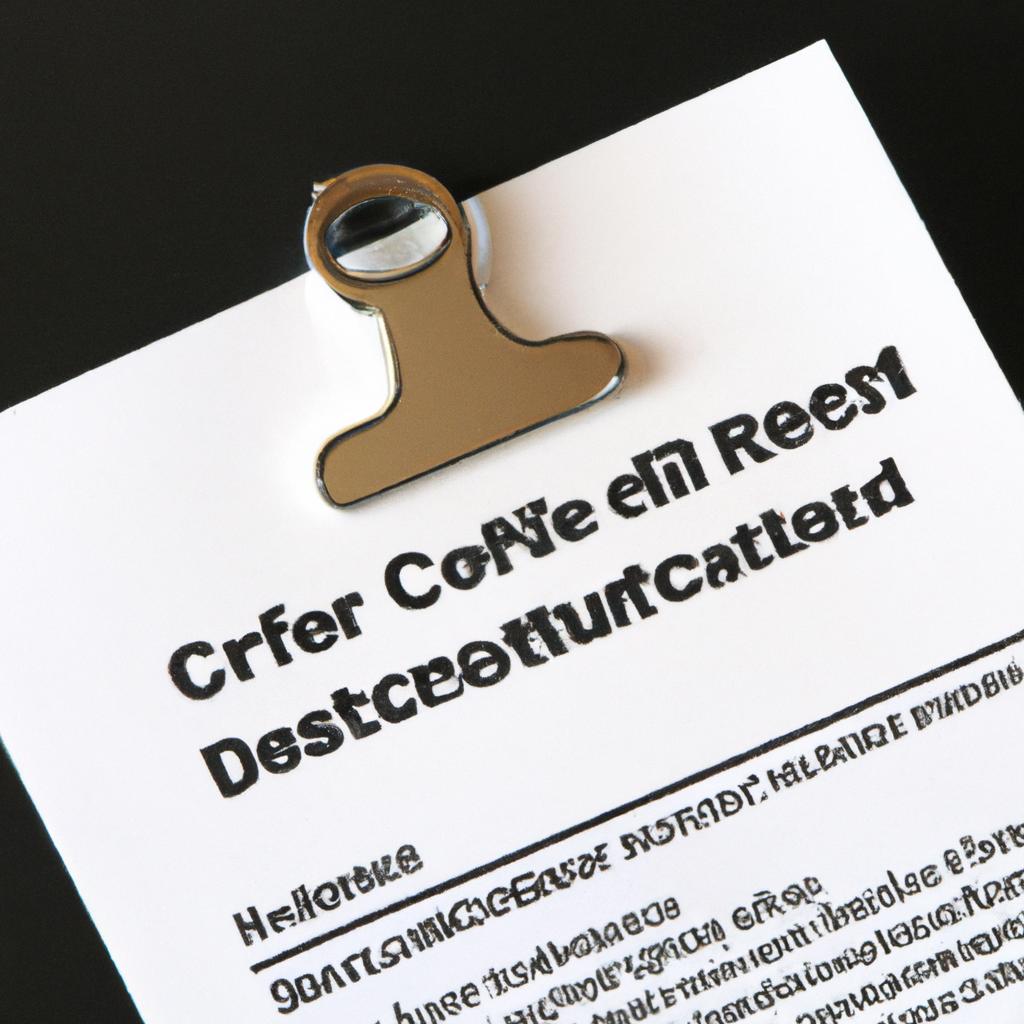In the intricate world of property ownership, possessing a copy of your house deed is a fundamental cornerstone for ensuring your rights and interests are protected. As seasoned attorneys at Morgan Legal Group in New York City, we understand the importance of securing this essential document. Join us as we delve into the reasons why obtaining a copy of your house deed is crucial for safeguarding your property rights and navigating the often complex landscape of real estate law.
Obtaining a Certified Copy of Your House Deed: An Essential Step in Protecting Your Property Rights
When it comes to protecting your property rights, obtaining a certified copy of your house deed is an essential step that cannot be overlooked. Your house deed is a legal document that proves your ownership of a property and outlines important details such as property boundaries, ownership rights, and any restrictions or easements that may apply. By having a certified copy of your house deed, you are ensuring that you have a secure and indisputable record of your property ownership.
Having a certified copy of your house deed provides you with peace of mind knowing that your property rights are protected. In the event of any disputes or challenges to your ownership, having a certified copy of your house deed can help you establish your legal rights and defend your property interests. It is a valuable document that should be kept in a safe place and easily accessible whenever needed.

Navigating the Legal Procedures for Accessing Your House Deed: Exploring the Requirements and Process
When it comes to accessing your house deed, it is essential to understand the legal procedures involved in obtaining a copy. The first step in this process is to gather the necessary documents to prove your ownership of the property. This may include your driver’s license, social security number, and a copy of your current mortgage statement.
Once you have gathered the required documents, you will need to submit a formal request to the county clerk’s office where the property is located. This request should include your name, the property address, and the reason for requesting a copy of the house deed. It is important to follow the specific guidelines set forth by the county clerk to ensure a smooth and efficient process. Remember, having a copy of your house deed is crucial for various legal transactions, such as selling the property or transferring ownership.

The Importance of Keeping a Copy of Your House Deed: Safeguarding Against Potential Disputes
When it comes to safeguarding your property, one of the most important documents you can possess is your house deed. By keeping a copy of your house deed in a secure location, you are protecting yourself against potential disputes that may arise in the future. This legal document serves as proof of ownership and outlines the details of your property, such as boundaries, easements, and any encumbrances that may exist.
- Prevention of Fraud: By keeping a copy of your house deed, you are less vulnerable to fraudulent activities such as property theft or unauthorized transfer of ownership.
- Proof of Ownership: In case of any property disputes or legal issues, having a copy of your house deed can provide concrete evidence of your ownership rights.
- Smooth Inheritance Process: When it comes to estate planning and passing down your property to heirs, a house deed copy can streamline the process and avoid potential conflicts.

Expert Recommendations for Securing and Storing Your House Deed: Best Practices for Homeowners
When it comes to securing and storing your house deed, it is crucial for homeowners to follow best practices recommended by experts in the field. One of the first steps in protecting your property rights is to ensure that you have a copy of your house deed readily available. Keeping a physical copy in a secure location, such as a safe or a safety deposit box, is essential to safeguarding this important legal document.
Additionally, homeowners should consider digitizing their house deed for added security. By scanning the document and storing it electronically on a secure cloud platform or external hard drive, you can have easy access to it in case the physical copy is lost or damaged. It is also advisable to share a copy of the deed with a trusted family member or legal representative, ensuring that multiple copies are available in case of an emergency. By following these expert recommendations, homeowners can protect their property rights and ensure that their house deed is secure and readily accessible when needed.
Q&A
Q: What is a house deed and why is it important to have a copy?
A: A house deed is a legal document that proves ownership of a property. It is important to have a copy as it serves as evidence of ownership and protects your property rights.
Q: How can I obtain a copy of my house deed?
A: You can obtain a copy of your house deed by contacting the county clerk’s office where the property is located. You may need to pay a fee and provide identification.
Q: What information is included in a house deed?
A: A house deed typically includes the property owner’s name, a description of the property, the purchase price, and the date of purchase.
Q: Can I get a copy of my house deed online?
A: Some counties may offer online access to property records where you can download a copy of your house deed. However, not all counties provide this service.
Q: What should I do if I lose my house deed?
A: If you lose your house deed, you can request a new copy from the county clerk’s office. You may need to provide identification and pay a fee to obtain a replacement deed.
Concluding Remarks
In conclusion, obtaining a copy of your house deed is an important step in protecting your property rights and ensuring peace of mind as a homeowner. By following the simple steps outlined in this article, you can easily secure a copy of your deed and have all the necessary documentation at your fingertips. Remember, a house deed is not just a piece of paper – it represents your ownership and investment in your home. So don’t delay, take the necessary steps to get a copy of your house deed today. Enjoy the peace of mind that comes with knowing your property rights are secure!
 How to Get a Copy of Your House Deed: A Comprehensive Guide
How to Get a Copy of Your House Deed: A Comprehensive Guide
If you are a homeowner or in the process of purchasing a new home, it is important to have a copy of your house deed. A house deed is a legal document that proves ownership of a property and outlines the rights and responsibilities of the property owner. Whether you need a copy for personal or legal reasons, it is essential to know the process of obtaining a copy of your house deed. In this article, we will discuss everything you need to know about getting a copy of your house deed, including the benefits, practical tips, and case studies.
Why Do You Need a Copy of Your House Deed?
There are several reasons why you may need a copy of your house deed. The most common reasons include:
1. To prove ownership: A house deed serves as proof that you are the legal owner of a property. This document contains your name, the property’s legal description, and any liens or encumbrances on the property. It is essential to have a copy of your house deed to settle any disputes or legal issues related to property ownership.
2. To apply for a loan or mortgage: If you are planning to take out a loan or mortgage, the lender will require a copy of your house deed. This document proves that you have ownership of the property and can be used as collateral for the loan.
3. For estate planning purposes: In the event of your passing, having a copy of your house deed will make it easier for your heirs to transfer ownership of the property. It is also helpful when creating a will or trust.
4. To make changes to the property: If you are planning to make any changes or improvements to your property, having a copy of your house deed will help you obtain necessary permits and approvals from local authorities.
How to Get a Copy of Your House Deed
Now that you understand the importance of having a copy of your house deed, let’s delve into the steps required to obtain one.
1. Check with Your County Recorder’s Office: The first step is to check with the County Recorder’s Office where your property is located. This is the government office responsible for keeping real estate records. You can visit their office in person or check their website for online services. Some counties also offer services over the phone or through email.
2. Gather Necessary Information: Before contacting the County Recorder’s Office, make sure you have all the necessary information to locate your house deed. This includes the complete address of the property, your full name as it appears on the deed, and the date of purchase. If you are unable to locate this information, you can use the property’s parcel or tax identification number.
3. Request a Copy of Your House Deed: Once you have gathered all the required information, you can now request a copy of your house deed. Depending on the county’s procedures, you may be able to obtain the copy immediately, or it may take a few days. Some counties charge a fee for copies, so make sure to inquire about this beforehand.
4. Verify the Authenticity of the Copy: Once you have received a copy of your house deed, make sure to verify its authenticity. Check for spelling errors, missing information, or any changes made to the original document. If you find any discrepancies, contact the County Recorder’s Office immediately to address the issue.
5. Keep the Copy Safe: It is vital to keep the copy of your house deed in a safe and secure place. Consider storing it in a fire-proof box or safe deposit box. You can also scan and save a digital copy for easy access in case of emergencies.
Practical Tips for Obtaining a Copy of Your House Deed
1. Keep Your House Deed Up to Date: It is essential to keep your house deed up to date, especially if any changes have been made to your property, such as a name change, transfer of ownership, or addition of new features. This will help to avoid any complications when requesting a copy in the future.
2. Consolidate Your Real Estate Documents: It is a good idea to keep all your real estate documents in one place. This includes your house deed, mortgage documents, property tax statements, and insurance policies. Having everything organized will make it easier to access these documents when needed.
3. Use a Title Insurance Company: If you are purchasing a new property, consider using the services of a title insurance company. These companies specialize in verifying the property’s ownership and ensuring that the house deed is free of any liens or encumbrances. They also offer title insurance, which protects homeowners in case of any future disputes or issues with the house deed.
Real-Life Example: The Importance of Having a Copy of Your House Deed
Eva and Mike recently purchased their first home in a suburban neighborhood. A few months after moving in, they received a letter from their neighbor claiming ownership of part of their backyard. Upon investigation, they found out that the previous owners had illegally extended their property beyond their boundary.
To resolve the issue, Eva and Mike had to provide a copy of their house deed to show the official property lines. Luckily, they had kept all their real estate documents organized and were able to quickly provide the necessary information to prove their ownership.
Final Thoughts
Having a copy of your house deed is essential for legal, financial, and estate planning purposes. It is advisable to have a copy of your house deed on hand and keep it updated in case of any changes. By following the steps outlined in this guide, you can easily obtain a copy of your house deed when needed. Remember to store the document in a secure place and verify its authenticity to avoid any potential issues in the future. If you have any questions or concerns, consult with a real estate attorney for guidance.












